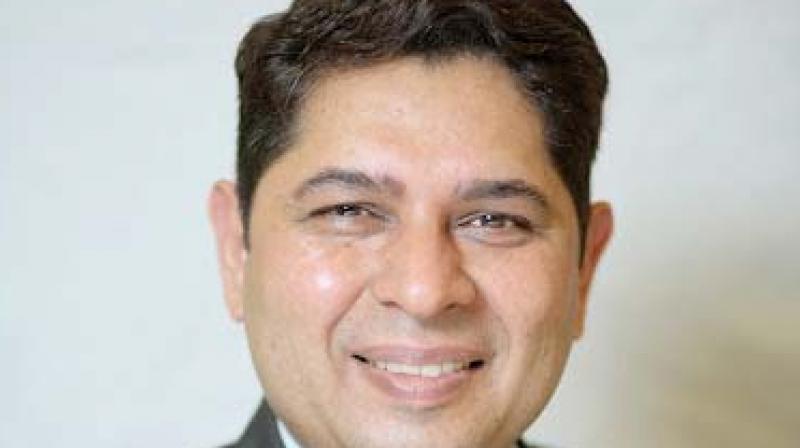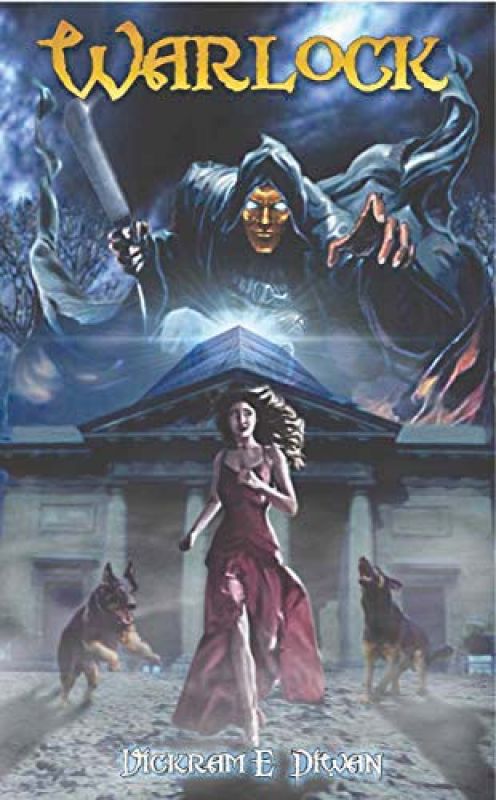A ghostly tale
An intriguing read Warlock by author Vickram E Diwan, traces the roots of Indian tantrik activities that lead to the belief in paranormal events.

A drop-dead gorgeous Bengali actress Payal Chatterjee with an angelic beauty matched with supreme self-confidence and willpower is tricked and trapped by Warlock — a practitioner of the evilest and vilest form of Satanic black magic in a haunted estate that houses the Temple of Darkness. The actress has little chance of survival in the den of evil from which no one has ever come out alive. With illustrious overview of both, the protagonist and antagonist, Vickram E. Diwan’s book Warlock is filled with some intriguing pages. While one waits for the actress’ survival from the ruthless killing-machine through various suspicious events, the antagonist too in his character hides himself behind many faces.
 Warlock by Vickram E Diwan, Publisher: Literati Books, pp.120, Rs 135
Warlock by Vickram E Diwan, Publisher: Literati Books, pp.120, Rs 135
Paranormal and horror in its genre, the book is interesting, informative and at some point becomes believable for all those cluster of people who deny supernatural figures and activities. “Magic, occult, tantra and paranormal have interested me ever since I was a child. I tried to write a book that is interesting, informative, and believable, and kept it as close to reality as possible. I am not in the business to preach but to entertain and I hope I have achieved that with this book,” says Vickram, who took six years to complete the book.
The obsessive and compulsive perfectionist, Vickram shares that he was never at ease or satisfied with his work during the process of writing the book. He was not obsessed with refining the language but also the research which took him longer to finish the book. In order to put articulate his ideas well and get facts right, the author spent a huge amount of time with Tantriks (occultists), which he believes was the most dangerous part of the process. “I had to make a pact with them not to reveal their true identity. That was their pre-condition for me to see and experience their occult work and activities, which are outside the realms of moral or legal,” recalls the author.
As the book progresses, it highlights the antagonist’s practice of Vama Marga — the left hand tradition in the Indian tantra. The articulation about the process of occult activities on paper reveals the author’s deep understanding of such activities. Every description about cremation grounds, ruins, haunted places have authenticated the books and makes one cringe page after page. “I have personally been to these places and have witnessed amazing acts and feats,” insists the author.
In the age of scientific belief, when it has become hard to trust such paranormal activities, Vickram is far from apprehensive about the subject. For him, life is not as simple as one wants to believe. “Imagination and occult take us to places and phenomenas that science is yet to catches up too. I know for sure that paranormal is real. What we do not understand or want to believe, we say is not normal but paranormal,” believes the author. When asked about the book making one cringe with events of devilry, Vickram further adds that he only wants to share what he has experienced in interesting ways. “My task with this book was to convey what I had seen. Fiction and characters are only a medium to tell the story,”
Recalling an incident that he experience during his research, the author recalls a disturbing and difficult phase when he accompanied a tantrik and saw him bring a dead person to life. The same incident is mentioned in the book when the Warlock practices his black magic on one of the dead bodies. “Nothing can compare to the experience of seeing a corpse open its eyes or find strange shadows surround you in a cremation or burial ground,” claims the author.
Having grown up in a regular family and hooked on to reading from an early age, he soon developed a love for writing. Vickram has a lifelong obsession with Bangla and German culture, and that’s why both his characters Warlock and Payal represent these cultures. “The admire these two cultures as well as Germans and Bengalis. And who is better equipped to challenge and stop a conquering German male’s advance if not a gutsy Bengali female?” quips the author as he concludes.
